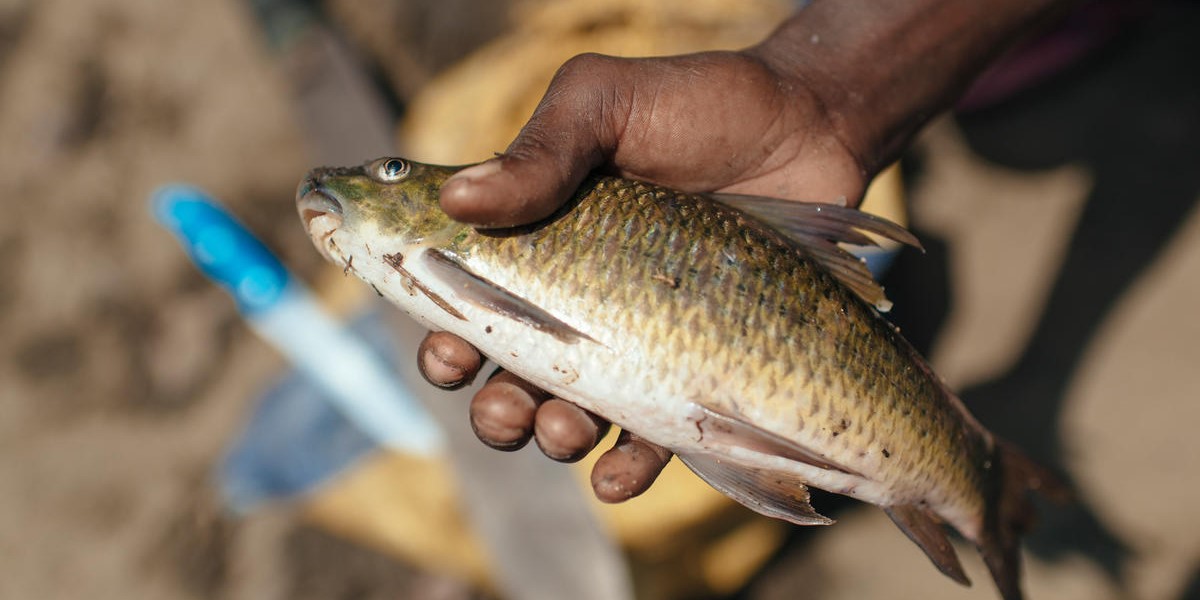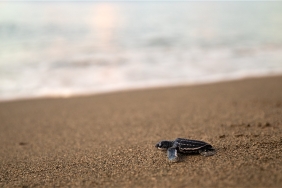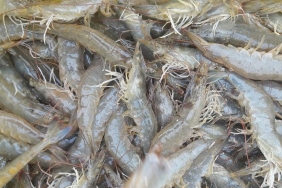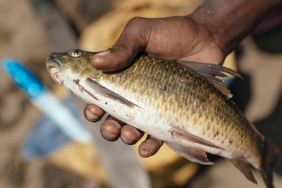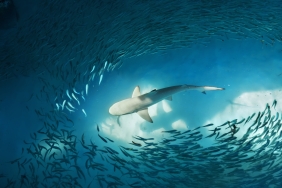TOWARDS RESPONSIBLE TILAPIA FARMING PRACTICES IN LAKE BATUR
Author: I Komang Dianto (Local Facilitator of WWF-Indonesia AIP Program, Bali)
Danau Batur, a lake located in Kintamani District, Bangli Regency, Bali, is one of 15 national priority lakes. This priority selection is based on the high level of environmental damage and its impact on the sustainability of the ecosystem and people's lives. The reason is that tilapia farming activities with the Floating Net Cage (KJA) system in this lake contribute to waste disposal. Although not the only source of pollution, the absence of inlet and outlet in Lake Batur makes the remaining feed waste and the results of fish metabolism become organic waste sources of pollution.
To support the lives of the people around Lake Batur, the majority of whom work as tilapia farmers, WWF-Indonesia conducted socialization of responsible aquaculture practices on September 20, 2016 in Terunyan Village, and on September 22, 2016 in Pekraman Batur Village. The socialized aquaculture practices are in accordance with the rules of Better Management Practices (BMP). The hope is that the tilapia farmers can practice responsible tilapia farming to obtain optimal results, with environmental conditions maintained.
Prior to this socialization activity, WWF-Indonesia had already identified groups of farmers around Lake Batur in order to establish partnerships in implementing the Aquaculture Improvement Program (AIP) related to tilapia farming. These groups are the Mina Sari Group (Terunyan Village) and the Sari Lestari Group (Batur Pekraman Village).
Both groups assisted by the Bangli District Livestock and Fisheries Service (P2D) have a jointly managed cage unit, in addition to the cages owned by each member. The Mina Sari group manages 39 group-owned pits, while the Sari Lestari group manages 20 group-owned pits.
This activity was attended by all 21 members of the Mina Sari group as well as; eight out of 13 members of the Sari Lestari group. In addition, the socialization activity in Batur Pekraman Village was also attended by an extension worker from the Land Livestock and Fisheries Service Office, Abdul Latif.
The topics discussed during this socialization activity emphasized on the importance of group participation in preserving the lake ecosystem for the sake of increasing aquaculture production, as well as. promoting mentoring programs and follow-up steps if the aquaculture groups are interested in working with WWF-Indonesia regarding responsible tilapia farming.
This activity was well received and appreciated by the participants. Their enthusiasm was seen during the question and answer session. Technical questions were raised, such as how to improve the pass rate, fish health, good feeding process, seed selection, and handling sick fish.
In the future, the farmers hope that WWF-Indonesia can provide guidance on responsible aquaculture practices, so that in the end the results obtained can improve their welfare.

